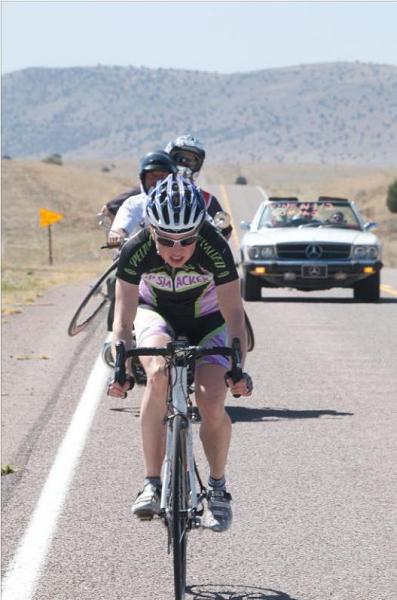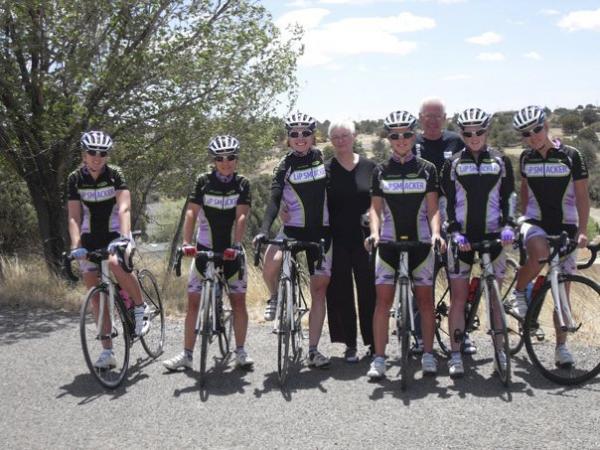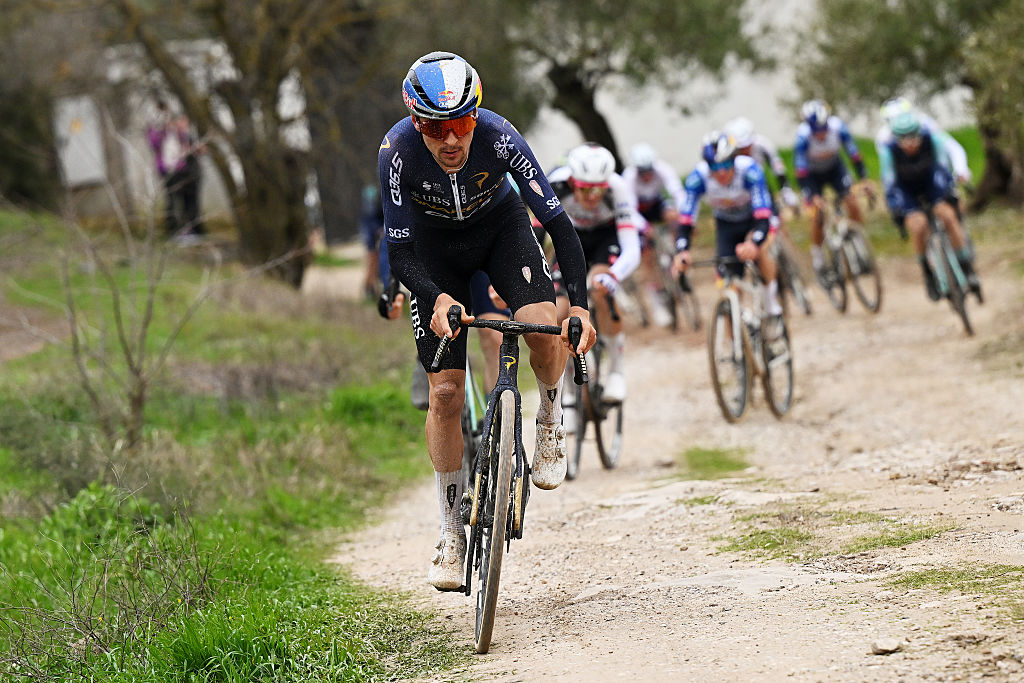What it takes
Hilary Billington's plan to boost opportunities for women cyclists
The latest race content, interviews, features, reviews and expert buying guides, direct to your inbox!
You are now subscribed
Your newsletter sign-up was successful


I have to start by thanking Liz Hatch for inspiring me to finally write another diary entry. A few weeks ago Liz wrote about the state of women's cycling and what can be done to improve the state of women's racing. She was right on so many fronts - it's terrible to see world-class races like the Montreal World Cup and the Tour of Prince Edward Island cancelled. It's terrible to see world-class riders lose the opportunity to compete when something goes awry with a sponsor/management, such as the Skyter and Lip Smacker teams. And it's terrible to see so few sponsors involved in the sport.
I also read a comment Ina Teutenberg made recently that rings very true. To paraphrase what I understood Ina to say, she said the level of competition in women's racing in the United States has gone down because so few women are able to train and race full-time. Most of the women who race as "professionals" in the United States have some sort of employment or commitment outside of the sport that supports their racing habit. Even though I haven't raced as long as Ina, nor at the same level, I totally agree that women's racing could be so much faster and exciting if there was a stocked peloton of full-time, truly professional riders.
The question is: what does it take to enable a truly professional women's peloton, with racers who get to dedicate themselves to the sport full-time?
What goes on with women's cycling is probably not too different from what goes on with other women's sports, like surfing or soccer or hockey. Women love the sport and they want to compete at the highest level, so they do whatever it takes to support their competition.
Having school, work and life experiences outside of cycling is, in my belief, part of a healthy existence. And for many women racing at a "professional" level, our previous life experiences have actually allowed us to race at the higher level. To take my example - I went to college, pursued a profession, got married, and had two kids. By the time I was in my mid-30s I had a pretty stable life. It was because of my stable life and supportive family that I was able to pursue racing at a high level.
Experiences like mine work well for a lot of women in the peloton. Many of us are lucky enough to have careers or families that are supportive and flexible enough to allow us to race "pro." We train 10 or 12 hours a week and try to be smart with our race schedule and efforts.
Of course, there are some women whose raw talent and drive have allowed them to race full-time for a living wage - but, realistically, how many US women are racing in a situation like that? I'd have to guess fewer than 10.
The latest race content, interviews, features, reviews and expert buying guides, direct to your inbox!
So you may think, "Hey, women don't need full salaries on truly 'pro' teams because you and other women have proven that you can rely on a job or family to support your racing." To that, I'd said you're right for me. I'm a decent bike racer, but you're never going to see me at the Olympics or World Championships. But, even with my supportive family, I needed help finding my way in the sport. I needed someone like Michael Engleman , who pulled me back from the abyss more than once and guided me into the sport. People like Michael need support so they can, in turn, support women finding their way in the sport...so how do we get the Michaels of the world some support?
I challenge people not to think about women like me who can generally take care of their racing habit and aren't Olympics-bound. Instead, think about the 18, 20 or 22-year-old woman who's in school or just finishing...she's got to make a choice. Does she go to grad school full-time? Does she pursue a job that will pay her a living wage? Or are there any opportunities for her to train and race full-time and see how good a cyclist (or soccer player or hockey player or surfer) that she can become?
Think about what it takes to run a women's team or support development of women cyclists in the United States.
You could support an entire US-based women's team with the salary of one averagely-paid professional man.
You could support an entire UCI/international women's team with the salary of one well paid professional man.
For the cost of prize money at a mid-level men's race, you could support a training center in Colorado, complete with dorms and service course.
For the cost of a one-quarter page advertisement in a major US newspaper, you could support a woman racing for an entire year.
Do you think women's racing is boring? I'd ask if you've ever watched a stacked women's race. Did you see last year's World Championship road race where the women slugged it out live on TV? Did you see last year's Philly race where the pro women passed the pro men? Yes, the women passed the men!
It's not all doom and gloom. Racing will go on. There are some great sponsors like Webcor, TIBCO, Peanut Butter & Co and HTC-Columbia that are providing women opportunities. And there are plenty of stubborn women like me who will find our way to races and go for it because we love the sport. But who is the next TIBCO? What marketing person at what company is going to make the difference for 10 women next year? Will it be you?
What does it take? Not much. Reach out to someone like Michael and find out for yourself.
See you at the races!
Hilary
Follow the program's young female cyclists as they embark on their journey to the top of the pro ranks
The US Women's Cycling Development program was founded by former pro rider, Michael Engleman, as a way to help promising young women cyclists reach their full potential as athletes.
The dedicated and well spoken women of this program provide thoughtful, compelling and sometimes hilarious anecdotes of their experiences in this diary. For further reading about the program, visit the USWCDP website.
